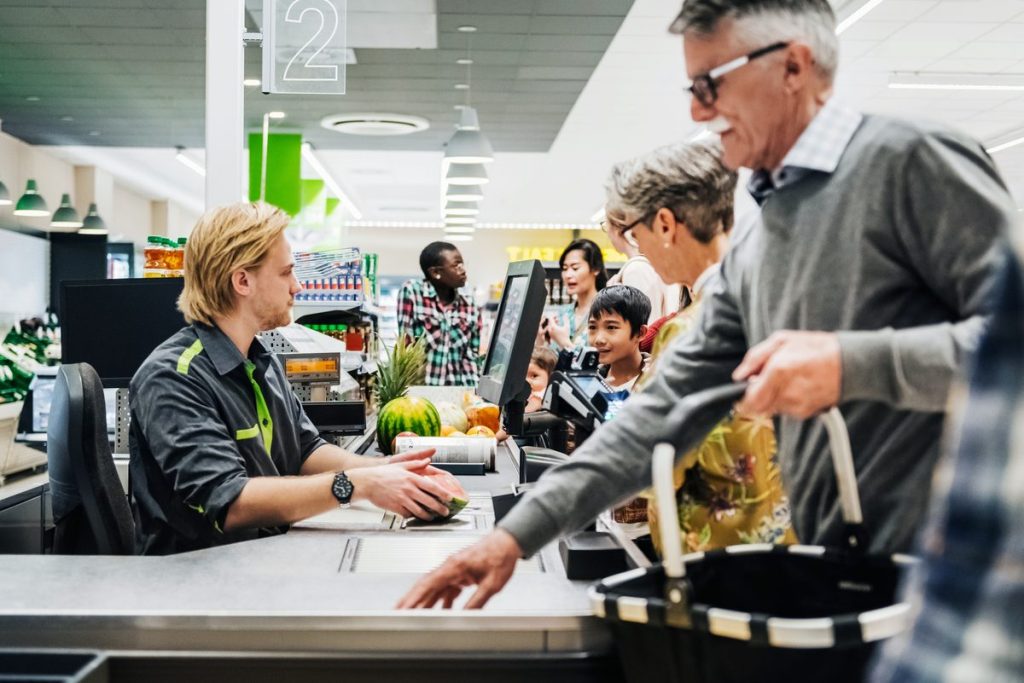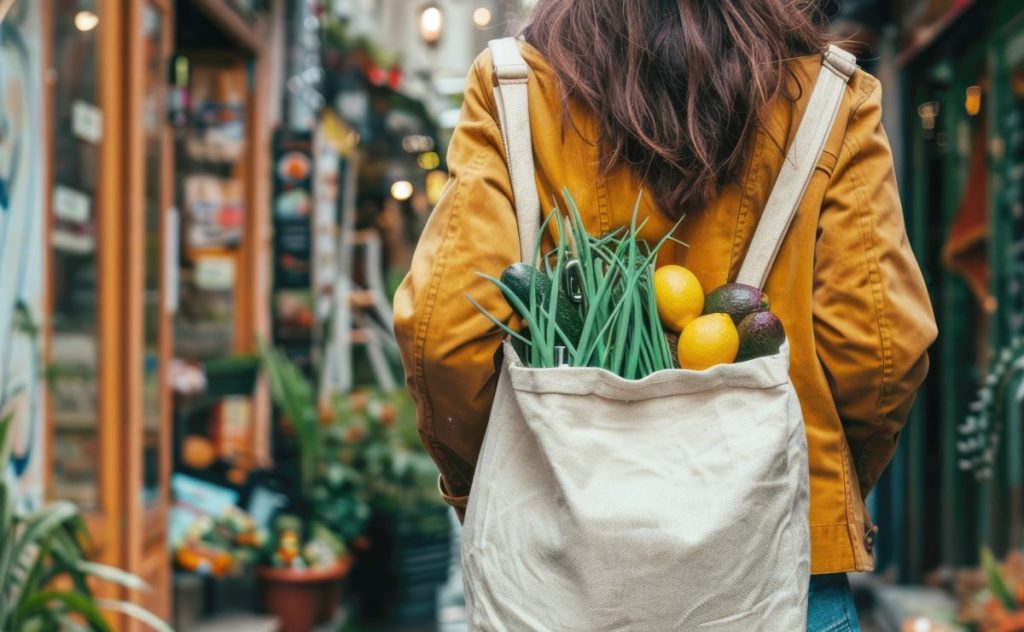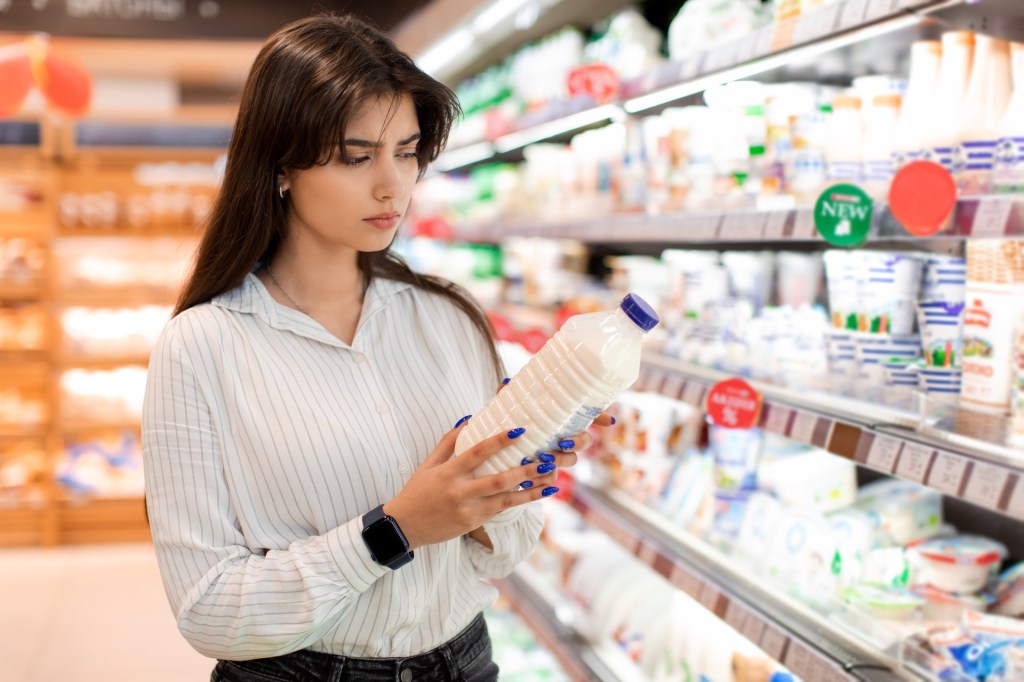Online Continues to Drive Category Performance
The digital transformation of the beauty industry shows no signs of slowing down, with online sales continuing to outpace in-store growth significantly. In the first half of 2024, 41% of all beauty and personal care sales occurred through e-commerce platforms, a marked increase from previous years. This surge is evident across the retail landscape, with major retailers, mass, and drug retailers all benefiting from the shift. Consumers are increasingly blending their shopping experiences, moving fluidly between online and in-store channels to find the best deals and a wider variety of products. As retailers continue to enhance their digital offerings and optimize omnichannel strategies, the growth of online beauty sales is set to accelerate further, reshaping how consumers engage with brands and make purchasing decisions.
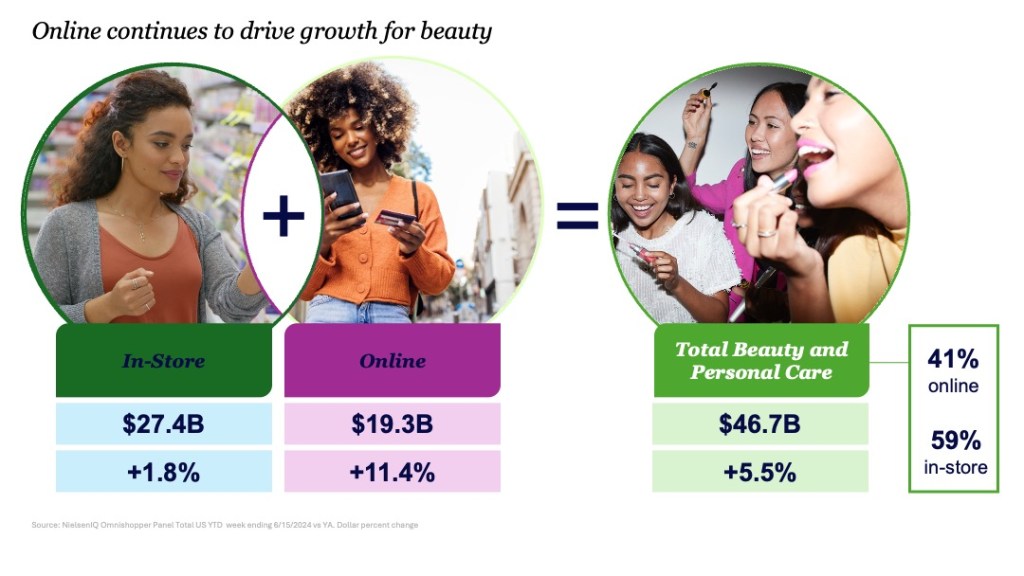
The impact of online sales is evident in the impressive growth figures reported for the beauty category. Over the past year, online beauty sales surged by 14.1%, contributing significantly to the overall 8.5% growth in the beauty market, which now stands at $104.9 billion. This growth is not just limited to the US; global markets are also witnessing similar trends. In APAC, the 12.3% growth rate is fueled by strong online sales in China and South Korea, while Europe sees countries like Germany and Spain leading the charge with robust online performance. This digital shift highlights the critical importance of a robust online presence and effective e-commerce strategies for beauty brands aiming to stay competitive and capitalize on evolving consumer behaviors.
The Continued Rise of Social Selling
Social selling has become a transformative force in the beauty industry, fundamentally altering how consumers discover and purchase products. Platforms like TikTok Shop and Temu are at the forefront of this revolution, driving unprecedented growth through their innovative approaches to e-commerce. These platforms leverage the power of social media to create an engaging shopping experience where users are exposed to products through influencers, viral content, and interactive features. The immediacy of social commerce compresses the path from discovery to purchase, enabling consumers to make buying decisions in just a few clicks. This model has proven especially effective among younger demographics, who value the convenience and instant gratification that social selling offers.
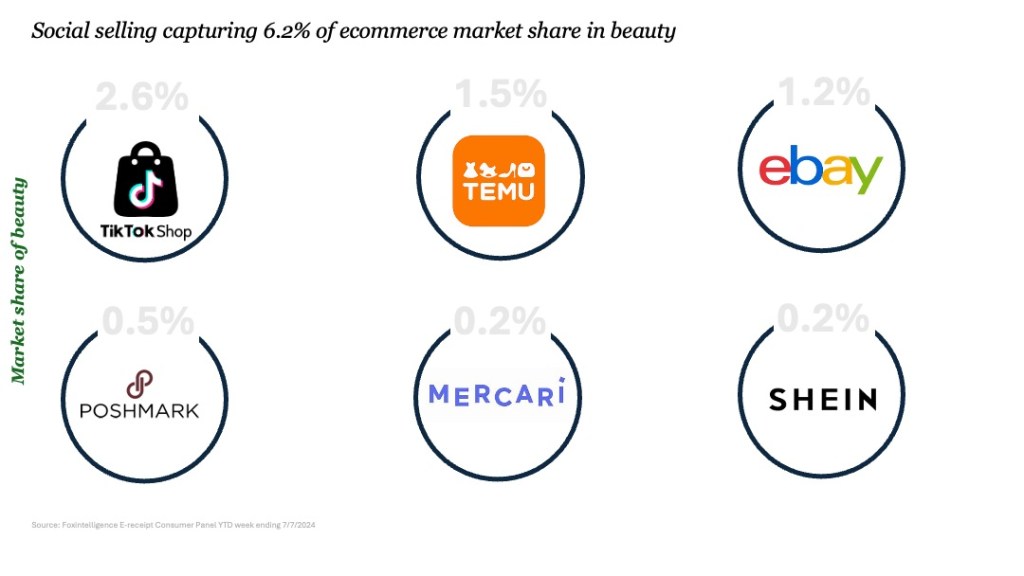
The rapid adoption of social selling is reflected in the numbers, with TikTok Shop alone accounting for 2.6% of all e-commerce transactions in the US. This surge is not just limited to the American market; globally, social selling is gaining traction as well, contributing to strong beauty sales growth across various regions. In China, for instance, TikTok’s massive 50% growth has been a key driver in keeping the beauty market in double-digit growth. Brands are increasingly recognizing the potential of social selling and are investing in these platforms to reach wider audiences and drive sales. The ability to harness social media trends, coupled with the personalized and interactive nature of social commerce, is setting a new standard for how beauty products are marketed and sold, making social selling an indispensable part of modern retail strategy.
Shifting Beauty Trends Make Waves
The beauty industry is no stranger to evolving trends, but the pace and impact of recent shifts are unprecedented. One of the most notable trends is the rise of wellness-oriented beauty products, reflecting a broader consumer focus on health and well-being. Products that promise both aesthetic and health benefits, such as skincare treatments with clinical ingredients and holistic body care items, are gaining popularity. This trend is particularly driven by Gen Alpha and Millennial consumers, who are more educated and discerning about the ingredients and benefits of their beauty products. As a result, brands that emphasize clean beauty, transparency, and efficacy are seeing significant growth.
Another major trend reshaping the beauty landscape is the increasing demand for personalized and inclusive products. Consumers are seeking out items that cater specifically to their unique skin types, tones, and concerns, leading to a surge in customized beauty solutions. This shift is evident in the success of indie beauty brands and those leveraging AI and advanced technologies to offer tailored skincare and makeup recommendations. Additionally, the concept of beauty dupes—affordable alternatives to high-end products—is gaining traction, making quality beauty accessible to a broader audience. These shifting trends are not only influencing product development but also changing how brands engage with their consumers, emphasizing authenticity, inclusivity, and personalization.

Want to learn more about the State of Beauty?
If interested in receiving the presentation, please contact Liz Bonofiglio Reaney at Liz.BonofiglioReaney@nielseniq.com.
You can also check out NIQ’s Beauty Inner Circle for insights on the health and beauty vertical, our latest research, and more.
